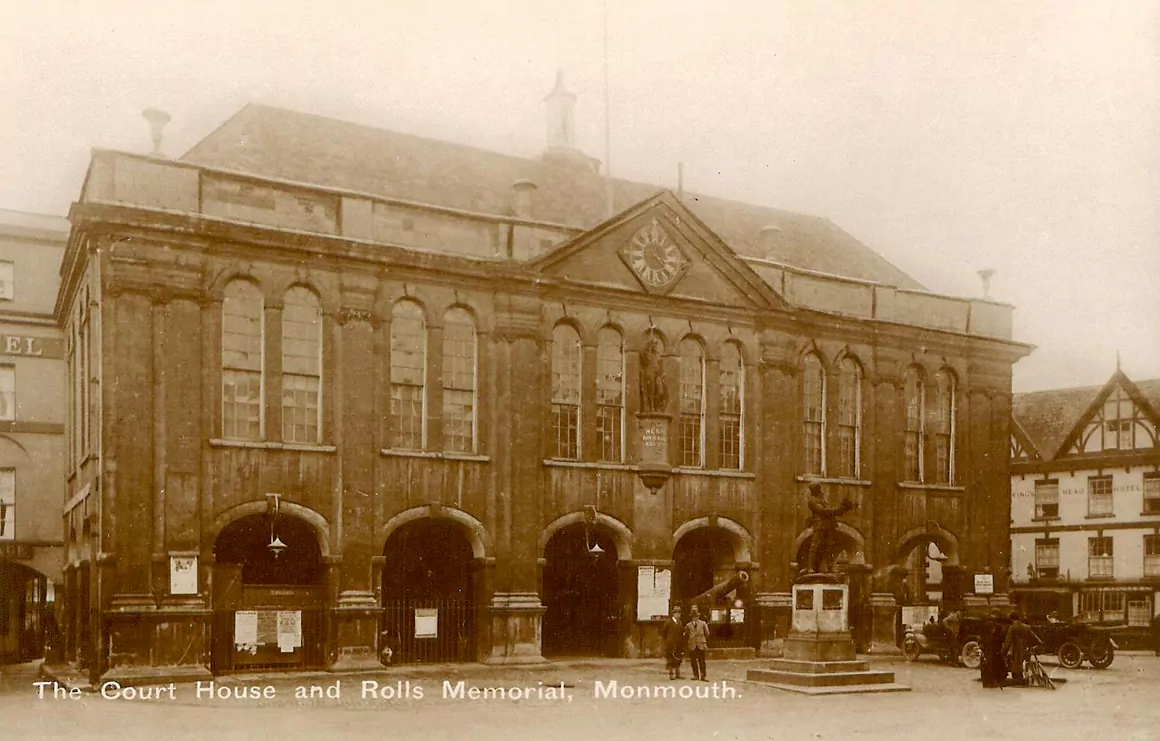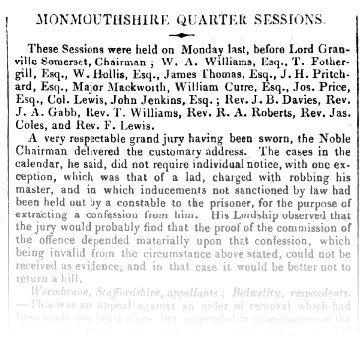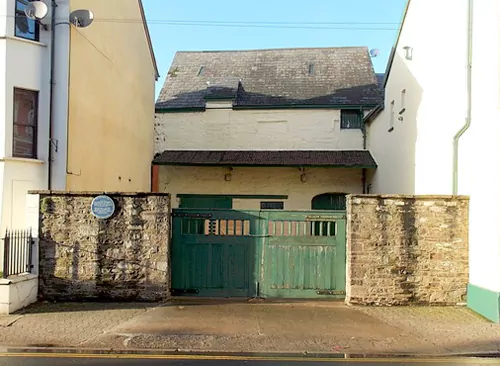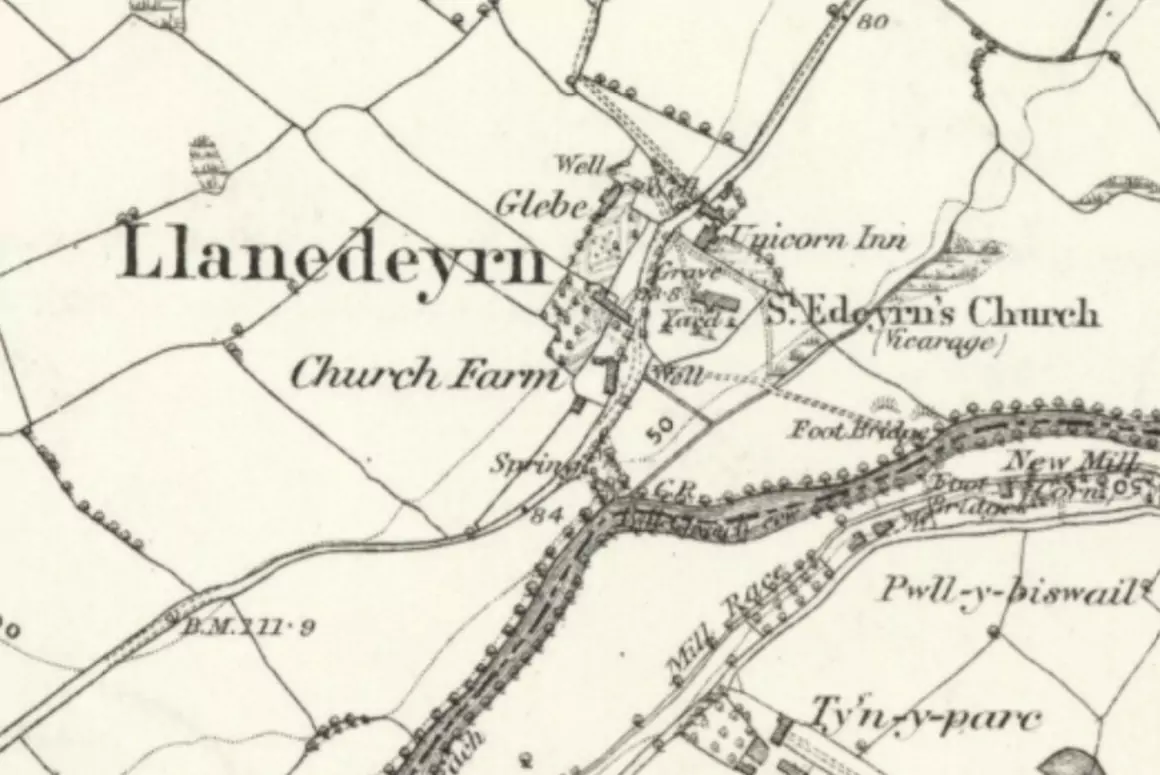![]()
News from the Courts – The Monmouthshire Quarter Sessions
The sessions for Monmouthshire Quarter Sessions in January 1835 began with news of an unexpected cancellation.
This was the case of ‘a lad, charged with robbing his master’. Not unusual, you might think, but this was slightly different, since ‘inducements not sanctioned by law had been held out by a constable to the prisoner, for the purpose of extracting a confession from him’. How exciting. It would however be interesting to know what that actually means. It might be a reference to bribery of course, but then you might think it is as good a way as any of describing how he was threatened with torture by thumbscrews.

After this teasing bit of news, the court got down to business and heard a very depressing case about 13 year old Llewellyn Powell, who pleaded guilty to a charge of stealing two pocket watches from James Harvey’s shop in Abergavenny. It was all very straightforward and the prosecutor took the time to hope the boy would be treated leniently in view of his age. He recognised that attempts were being made to rehabilitate him, ‘to reclaim the poor boy from his vicious courses’. His uncle confirmed that Llewellyn had ‘been cruelly abandoned by his father’, a cabinet maker in Abergavenny, and that for many weeks he had been rough-sleeping in hay-lofts and outhouses around the town. Like the prosecutor, his relatives also pleaded for leniency; if he could only receive the slightest of punishments, they would pay for an apprenticeship for him, ‘to some decent and industrious tradesman’. In that way Llewellyn Powell’s life could be saved and his future assured.
Sadly, the court decided that they could not do that, and instead passed a sentence of transportation of life, ‘expressing, however, a confident hope that representation to the Secretary of State would obtain a re- mission of punishment’.

There is no record anywhere of that happening. And on the same day, over at the Glamorganshire Quarter Sessions in Cardiff, David Lewis was sentenced to four months in Cardiff’s House of Correction for stealing a watch in St Mellons.
Sarah Powell, who was 14, was more fortunate. She was charged with stealing £10 from her mistress, Mrs Wyke, in Abergavenny. Suspicions were raised when ‘One evening, during the temporary absence of her mistress, Sarah left her service without giving any notice’.
 When Mrs. Wyke’s returned home, she discovered that she had not only lost her servant, but also a fine £10 note. Sarah was quickly apprehended in rented accommodation in the town, but since Mrs. Wyke was unable to identify the note as being precisely the same one she had lost, Sarah was acquitted.
When Mrs. Wyke’s returned home, she discovered that she had not only lost her servant, but also a fine £10 note. Sarah was quickly apprehended in rented accommodation in the town, but since Mrs. Wyke was unable to identify the note as being precisely the same one she had lost, Sarah was acquitted.
The court was then entertained by 28 years old James Phillips, who was indicted for breaking and destroying twelve young trees (eleven of them oaks) in the park of Sir C. Morgan in Tredegar. You might have thought that he was too old for this kind of thing, particularly since it all started when he was chased out of the grounds whilst picking acorns, but then there has never been much to do in Tredegar. The next day the trees were discovered destroyed and a reward of £10 was immediately offered for any credible information.
This was suddenly an attractive opportunity for James, who went to the house of the constable, confessed to the crime and attempted to claim the reward. Sadly, things didn’t quite turn out as he had hoped, notwithstanding his confession that ‘he did it for the sake of mischief, and at the temptation of the devil’. It seems fairly obvious to me that James hadn’t properly thought through his clever idea. And if the Devil really was in on it and thought it was a wizard plan, the rest of us haven’t got much to worry about as far as the Prince of Darkness is concerned. James ‘was sentenced to twelve months imprisonment and hard labour in the county gaol of Monmouth, and to be twice privately whipped’.
Ann Chitty was sent to prison for four months with hard labour for stealing a tin box from Maria Rees in Newport, whilst Lewis Williams and William Davis, were charged with stealing three fowls from farmer Jones, on a night when he had already lost thirteen fowls. When the boys were detained, they were ‘busily employed feathering three of them’. They were imprisoned with hard labour for three months.

In other animal-related news, I regret to tell you that John Attiwell, and Charles Edwards, did not receive sufficient credit for their ambition when they were found guilty of stealing a portion of a dead horse. The poor thing had been put out to graze and the following day it was found dead in the field. When our two enterprising heroes were discovered, they were busily engaged in dismembering the body, and carrying portions of it away. There was, however, no evidence to prove that they killed the animal. Their sentence for such enterprising alfresco butchery was a fortnight’s imprisonment in Usk House of Correction.
I can also tell you that William Charles, ‘the celebrated provincial prize-fighter, pleaded guilty to two charges. One was described rather alarmingly as the riot and rescue of a prisoner from the custody of John Redman, the very active and intelligent police officer of Newport’. The details of what happened are glossed over in the press reports, which is certainly a surprise. The second charge he faced was one of assault upon the imaginatively named Constable Morris Morris, a constable. I am sure I am not alone in noticing a pattern here. He was bound over to keep the peace, which does appear to be extremely lenient in comparison to some of the other sentences handed out during the court session for crimes against property. You might have thought that thumping a constable or facilitating the escape of a prisoner might have exercised the court a little more. But then, as a local celebrity, maybe there were some favours Charles could call in.
And Mary Owen? She was imprisoned for three days for stealing a flat iron. Perhaps possession of an iron with the intention of using it over many hours, should have been regarded as punishment enough.





